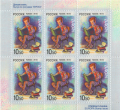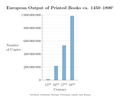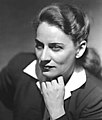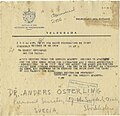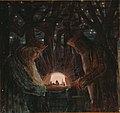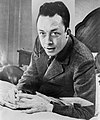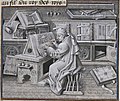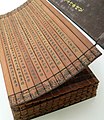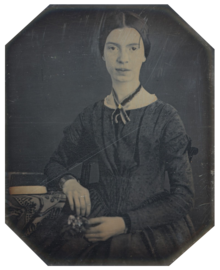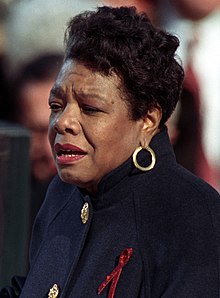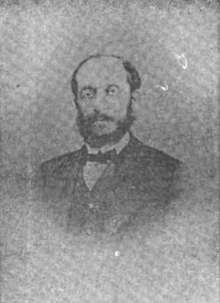Portal:Literature
Introduction

Literature is any collection of written work, but it is also used more narrowly for writings specifically considered to be an art form, especially novels, plays, and poems. It includes both print and digital writing. In recent centuries, the definition has expanded to include oral literature, much of which has been transcribed. Literature is a method of recording, preserving, and transmitting knowledge and entertainment. It can also have a social, psychological, spiritual, or political role.
Literary criticism is one of the oldest academic disciplines, and is concerned with the literary merit or intellectual significance of specific texts. The study of books and other texts as artifacts or traditions is instead encompassed by textual criticism or the history of the book. "Literature", as an art form, is sometimes used synonymously with literary fiction, fiction written with the goal of artistic merit, but can also include works in various non-fiction genres, such as biography, diaries, memoirs, letters, and essays. Within this broader definition, literature includes non-fictional books, articles, or other written information on a particular subject. (Full article...)
General images -
Pattern Recognition is a novel by science fiction writer William Gibson published in 2003. Set in August and September 2002, the story follows Cayce Pollard, a 32-year-old marketing consultant who has a psychological sensitivity to corporate symbols. The action takes place in London, Tokyo, and Moscow as Cayce judges the effectiveness of a proposed corporate symbol and is hired to seek the creators of film clips anonymously posted to the internet.
The novel's central theme involves the examination of the human desire to detect patterns or meaning and the risks of finding patterns in meaningless data. Other themes include methods of interpretation of history, cultural familiarity with brand names, and tensions between art and commercialization.
Pattern Recognition is Gibson's eighth novel and his first one to be set in the contemporary world. Like his previous work, it has been classified as a science fiction and postmodern novel, with the action unfolding along a thriller plot line. Critics approved of the writing but found the plot unoriginal and some of the language distracting. The book peaked at number four on the New York Times Best Seller list, was nominated for the 2003 British Science Fiction Association Award, and was shortlisted for the 2004 Arthur C. Clarke Award and Locus Awards.
Selected excerpt
| “ | It was the best of times, it was the worst of times, it was the age of wisdom, it was the age of foolishness, it was the epoch of belief, it was the epoch of incredulity, it was the season of Light, it was the season of Darkness, it was the spring of hope, it was the winter of despair, we had everything before us, we had nothing before us, we were all going direct to Heaven, we were all going direct the other way—in short, the period was so far like the present period, that some of its noisiest authorities insisted on its being received, for good or for evil, in the superlative degree of comparison only. | ” |
| — Charles Dickens, A Tale of Two Cities | ||
More Did you know
- ... that Irish poet John Keegan Casey was released from prison on the condition he leave for Australia, but instead he stayed in Dublin in disguise?
- ... that the 1916 children's novel Just David was the second in a series of four consecutive bestsellers in the United States for Eleanor H. Porter?
- ... that a decasyllabic quatrain is a poetic form in which each stanza consists of four lines of ten syllables, usually with a rhyme scheme of AABB or ABAB?
- ... that in late 2008, Norwegian novelist Johan Harstad won the Brage Prize and was hired as the first in-house playwright at the National Theatre of Norway?
- ... that the Franciscan friar Manuel Antonio de Rivas, who was tried for heresy in 1775 in Mexico, wrote the first science-fiction text in the Americas?
Selected illustration
Did you know (auto-generated) -

- ... that The Tale of Genji's Kaoru Genji has been called literature's first antihero?
- ... that the literary movement of créolie tries to integrate the identity of Réunion with France?
- ... that the pastor John Littlejohn went from selling pornographic literature to sailors as a youth to protecting the Declaration of Independence?
- ... that more than 1000 tons of paper were used every year printing car literature for the British Motor Corporation by the in-house Nuffield Press?
- ... that Edo literature was influenced by British colonialism in the late 19th century, which introduced the Roman script and Christianity to the Edo people?
- ... that literary fiction novel Agatha of Little Neon's title stems from a house that is "the color of Mountain Dew"?
Today in literature
- 1638 - Charles Sackville, 6th Earl of Dorset, English poet born
- 1670 - William Congreve, English playwright born
- 1724 - Frances Brooke, English writer born
- 1732 - Pierre-Augustin Caron de Beaumarchais, French playwright born
- 1776 - E.T.A. Hoffmann, German writer born
- 1862 - Edith Wharton, American writer born
- 1888 - Vicki Baum, Austrian writer born
- 1895 - Eugen Roth, German writer born
- 1934 - Stanisław Grochowiak, Polish poet born
- 1998 - Walter D. Edmonds, American author died
- 2005 - Vladimir Savchenko, Ukrainian writer died
Topics
| Literature: | History of literature · History of the book · Literary criticism · Literary theory · Publishing |
| By genre: | Biography · Comedy · Drama · Epic · Erotic · Fable · Fantasy · Historical fiction · Horror · Mystery · Narrative nonfiction · Nonsense · Lyric · Mythopoeia · Poetry · Romance · Satire · Science fiction · Tragedy · Tragicomedy · more... |
| By region: | African literature · Asian · European · Latin American · North American · Oceanic |
| By era: | Ancient literature · Early medieval · Medieval · Renaissance · Early Modern · Modern |
| By century: | 10th century in literature · 11th · 12th · 13th · 14th · 15th · 16th · 17th · 18th · 19th · 20th · 21st |
| Recent: | 2018 in literature· 2017 · 2016 · 2015 · 2014 · 2013 · 2012 · 2011 · 2010 · 2009 · 2008 · 2007 · more... |
Categories
Related portals
| Concepts: | |
| Genres: | |
| Religions: |
Things you can do
Related WikiProjects
WikiProjects related to literature:
| Concepts: | Biographies · Books · Comics · Magazines · Manga · Novels · Poetry · Short stories · Translation studies |
| Genres: | Alternate history · Children's literature · Crime · Fantasy · Horror · Mythology · Romance · Science fiction |
| Authors: | Honoré de Balzac · Roald Dahl · William Shakespeare |
| Series: | Artemis Fowl · Chronicles of Narnia · Discworld · Harry Potter · His Dark Materials · Hitchhiker's Guide to the Galaxy · Inheritance Cycle · James Bond · King Arthur · Middle-earth · Percy Jackson · Redwall · A Series of Unfortunate Events · Shannara · Sherlock Holmes · A Song of Ice and Fire · Star Wars · Sword of Truth · Twilight · Warriors · Water Margin · Wizard of Oz |
| Regions: | Australian literature · Indian literature · Persian literature |
Associated Wikimedia
The following Wikimedia Foundation sister projects provide more on this subject:
-
Commons
Free media repository -
Wikibooks
Free textbooks and manuals -
Wikidata
Free knowledge base -
Wikinews
Free-content news -
Wikiquote
Collection of quotations -
Wikisource
Free-content library -
Wikiversity
Free learning tools -
Wiktionary
Dictionary and thesaurus











